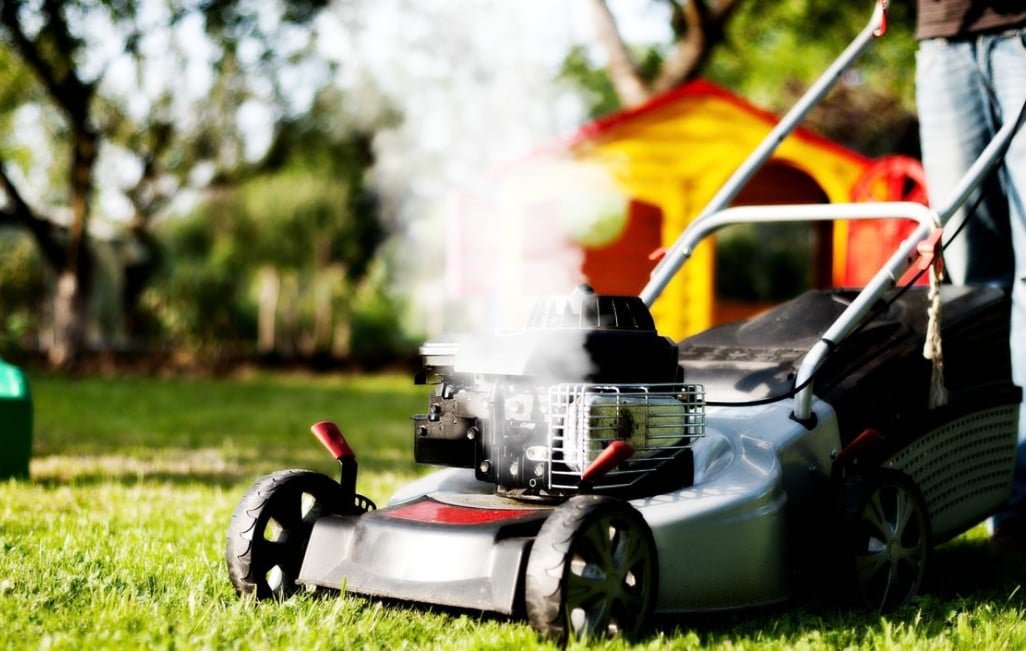California’s Move to Phase Out Gas-Powered Lawn Equipment: A Game-Changer in Environmental Policy
Small But More Terrible in Polluting Than Cars
California, known for its progressive environmental policies, has taken a groundbreaking step by enacting a law to phase out gas-powered lawn care equipment by 2024. This move comes on the heels of the state’s decision to phase out gas-powered vehicles by 2035, marking a significant shift towards a cleaner, more sustainable future.
The ban on gas-powered lawn care equipment is not just about reducing noise pollution but primarily focuses on curbing emissions from small, off-road engines (SOREs). These engines are known to be more polluting than all cars combined in the state, making them a major contributor to air pollution and climate change.
California’s ambitious goal of achieving carbon neutrality by 2045 necessitates addressing emissions from various sources, including SOREs. The comparison drawn by the California Air Resources Board (CARB) between the emissions from these engines and a 2016 Toyota Camry’s output is staggering, highlighting the urgent need for action.
The ban has sparked a debate among various groups, with some opposing the restrictions on gas-powered appliances, citing concerns about consumer choice. However, environmental advocates argue that the move is crucial for public health and the environment, setting a precedent for other states to follow.
Carbon Emissions of Lawn Care Equipment
The ban on gasoline-powered lawn equipment in California signifies a transformative shift in the landscape of suburban America, where manicured lawns have long been a symbol of status and pride. However, the cultural significance of lawns comes at an environmental cost, with gas-powered equipment emitting pollutants equivalent to driving a car 300 miles in just an hour.
In 2020, lawn tools emitted over 30 million tons of CO2, contributing significantly to air pollution and climate change. Electric alternatives offer a cleaner and quieter operation, making them a more sustainable choice for lawn maintenance.
Manufacturers are increasingly investing in battery-powered options, driven by stricter regulations and consumer demand for cleaner technologies. Many individuals and businesses have already made the switch to electric alternatives voluntarily, reflecting a growing awareness of the need for sustainable practices.
The movement towards electric lawn equipment is gaining momentum, with companies like Stanley Black & Decker Inc., Husqvarna, and Honda leading the way in innovation. While concerns about the cost and performance of electric tools remain, the California ban aims to drive the transition to zero-emission equipment with the help of rebates and programs for landscapers.
The Big Push for Electrifying Appliances
The shift towards electric lawn equipment is part of a larger trend towards electrification in various industries, driven by incentives and a growing awareness of the need for sustainable practices. Manufacturers are prioritizing battery-powered options, with innovations like robotic mowers and autonomous equipment designed to make lawn maintenance more efficient.
While the transition to electric tools may come with challenges, such as cost and performance concerns, the benefits in terms of reducing air pollutants and greenhouse gas emissions are undeniable. The California ban on gas-powered lawn equipment sets a precedent for future policies targeting other gas-powered appliances, with the ultimate goal of achieving significant reductions in environmental impact.
Lawmakers like Marc Berman are leading the charge towards a cleaner, more sustainable future, envisioning a broader implication beyond landscaping. By phasing out gas-powered appliances and promoting cleaner technologies, California is setting an example for other states to follow in the fight against climate change.
Overall, California’s move to phase out gas-powered lawn care equipment is a significant step towards a greener, more sustainable future. By prioritizing the environment and public health, the state is leading the way in environmental policy and setting a precedent for others to follow. The transition to electric alternatives may pose challenges, but the benefits in terms of reducing emissions and protecting the planet are well worth the effort.

